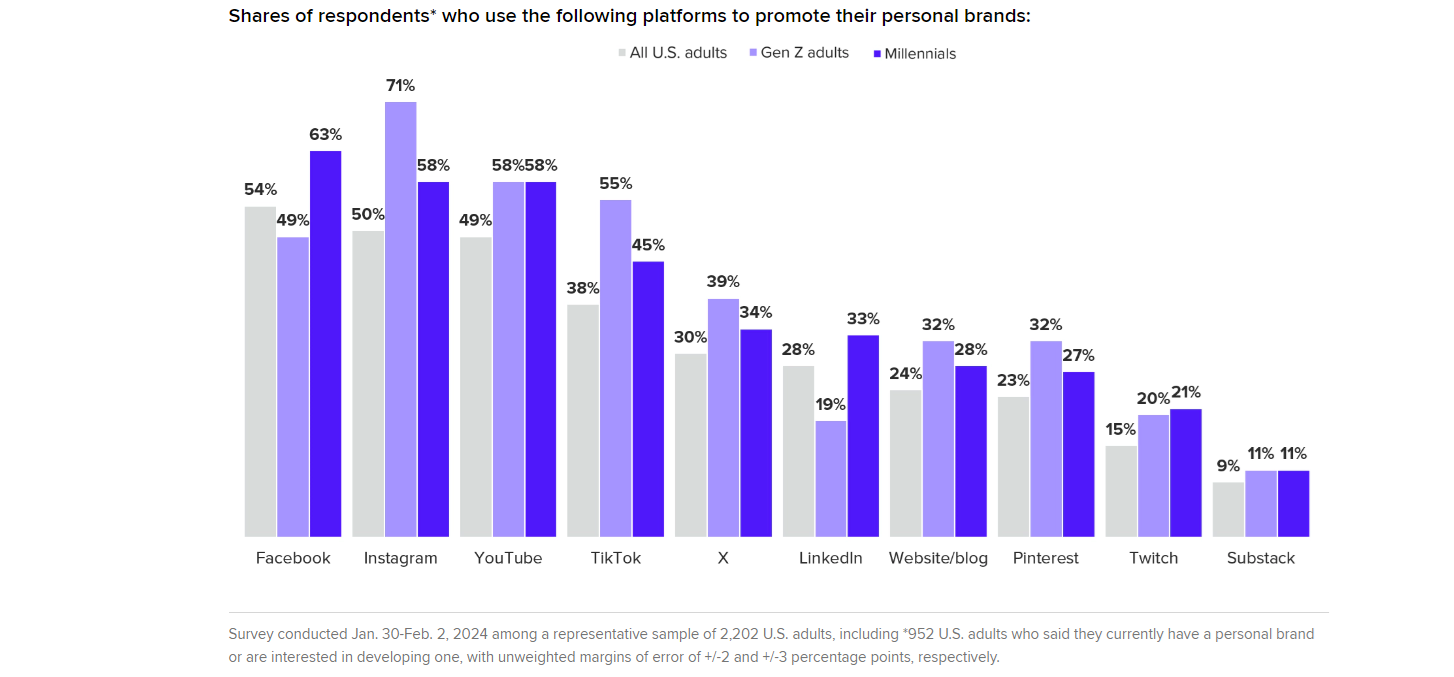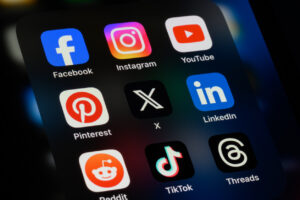By the Numbers: Gen Z loves building their personal brand. What that means for companies.
Always be building.

Gen Z adults are big believers in themselves. Specifically, 67% believe it’s very (25%) or somewhat (42%) important to have a strong personal brand, according to new research from Morning Consult. Those percentages far outstrip even their generational neighbor Millennials (51%) and U.S. adults as a whole (a mere 40%).
Morning Consult attributes this spike in self-branding to Gen Z’s love of influencers and their use of creator-driven apps as entertainment: When you see other people building a brand, you’re more likely to see the value in building one for yourself, even if you’re not streaming for millions of fans. But there’s also a darker potential reason for the emphasis on personal branding. As Morning Consult Brand Analyst Ellen Briggs writes: “Their coming of working age happened amid waves of mass layoffs and broader economic uncertainty. Under these circumstances, being a known entity with a public portfolio of work safeguards against job insecurity and serves as a calling card to attract better opportunities.”
Where and how Gen Z builds their brands
Unsurprisingly given Gen Z’s love of video content, they vastly prefer to show off their personality and expertise with visual content over written. Sixty-six percent of the generation prefer to build their brand with video versus just 27% who favor written.
We also see this play out in the social networks Gen Zers use to foster their image.

For Gen Z, Instagram reigns supreme by a wide margin. Its ability to combine still images, videos and text captions offer a wide range of creative options. Next comes YouTube, nearly tied with TikTok — again, very video centric.
But then look at what comes in fourth place for Gen Z: Good old Facebook. It seems news of its demise has been greatly exaggerated. The platform still offers a huge audience, tons of posting options and easy integration with Gen Z favorite Instagram. And after all, it’s clearly where Millennials are still hanging out — 63% of the older group turn to Facebook for their brand-building needs.
Just as notable are which platforms Gen Z tends to shy away from. X sees relatively little use, ranking just above Pinterest and personal blogs, while professionally focused LinkedIn is used by only one-in-five members of Gen Z working to build their brands.
So what can we glean from this? Gen Zers are gravitating toward more lifestyle-focused networks rather than hard business, like LinkedIn. Part of this could be attributable to age— while the survey only spoke to adult members of Gen Z, many may be in college or else entering trades that don’t benefit from the buttoned-up social platform. Or they could be embracing a brand that spans both personal and professional rather than pigeonholing it into one side.
What companies should know
Gen Z’s emphasis on personal branding presents a number of opportunities — and a few challenges — for corporate brands.
First, this proliferation of people building brands means an army of microinfluencers who might be strong partners with targeted, dedicated audiences. When everyone is carving out a unique niche, that allows for better targeting from people who have already put in the work to build an audience you want, often for reasonable rates.
It also offers a vivid window into the lives of hordes of people and what matters to them. By seeing how they choose to brand themselves, brands can better understand what values matter to their audiences writ large. How do they present themselves? What products do they already have an affinity for? What values do they espouse? By consuming this content, communicators can learn to build better content that resonates.
Finally, it does present a challenge for employers. While these may be personal brands, their behavior will still reflect on their employer — for better or worse. You might have a worker who gets famous and becomes a brand advocate for you — or one who behaves badly and becomes a liability. Either way, it’s worth keeping an eye on these accounts and creating policies about how employees navigate their relationships with their employers and content partners, just to ensure your own brand is protected.
How do you build your personal brand?
Allison Carter is editor-in-chief of PR Daily. Follow her on Twitter or LinkedIn.







